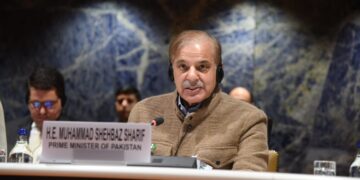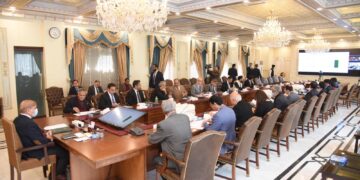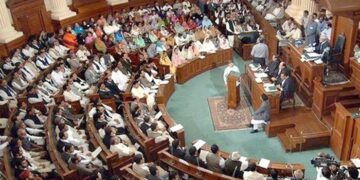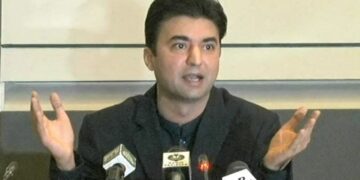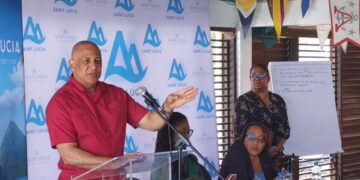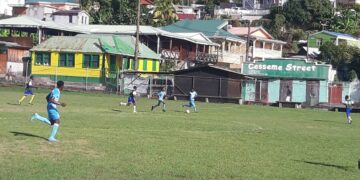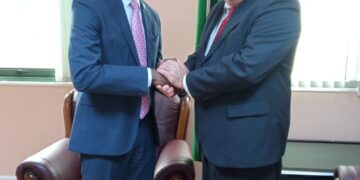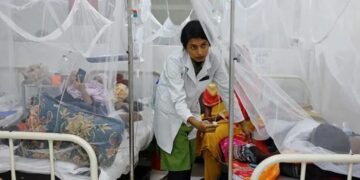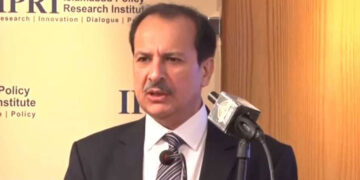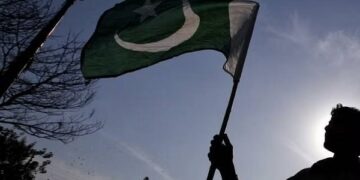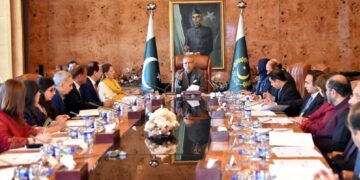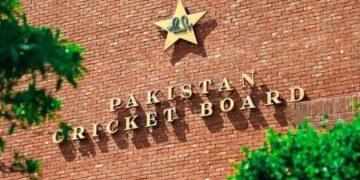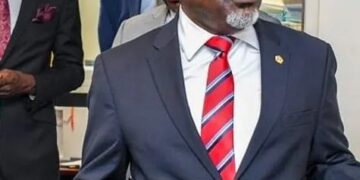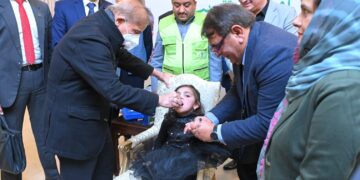Ishaq Dar, a newly elected senator, made his first appearance before an accountability court in Islamabad on Wednesday after going five years without doing so. He explained that he was unable to return to Pakistan and appear before the court because the PTI government, then led by Imran Khan, had confiscated his passport.
Dar presented himself to the accountability court today in order to request the revocation of his arrest warrant.
On September 23, Judge Mohammad Bashir of the Accountability Court revoked the perpetual arrest warrant against Dar, which had been issued on December 11 after he fled a case involving assets beyond means. The senator had until October 7 to submit to the legislation because the warrants were suspended.
The warrant, however, may potentially be recalled by the accountability judge. If the judge employs this authority, Dar will no longer be obliged to apply for bail but will instead be required to participate in the trial and sign up for every hearing date until the court releases him from personal appearance.
Dar arrived in the nation on Monday after spending the previous weekend in London, and the next day he was sworn in as a senator, paving the path for his appointment as the federal finance minister.
Judge Bashir questioned the PML-N leader about his case during his presence in court today, noting that his application had already been received.
Dar testified in court that he intended to come despite being ill, but the previous administration had confiscated his passport, preventing him from entering the nation again.
Dar informed the court that “the [Pakistani] embassies across numerous nations were given directives to not issue me the passport.”
The hearing was postponed until October 7 after the court heard the arguments and sent a notification to the National Accountability Bureau.
“No agreement,”
Dar later refuted claims that his return was connected to any bargain [with the regime] in a media interview outside of court, claiming his party did not believe in “such arrangements.”
He said that the PTI government had brought fake charges against him and that the previous administration’s efforts to blackmail him had been ineffective.
He expressed optimism that his party will help the nation emerge from the crisis “like we did in 1998–1999 and from 2013 forward.”
No administration could go as far as the PTI did, according to Dar, who criticised the PTI leadership for disregarding “sovereign agreements.”
The senator stated he would aim to stabilise the currency before moving on to other goals when talking about the future plan.
“Where our currency is at the moment is not where it should be. I think some of the speculators who were participating in the game have since ceased. They had begun to move in the right direction before I arrived here, he said. The reduction of inflation and interest rates is our second priority.
The senator responded to a different query by stating that Miftah Ismail, his predecessor, made every effort to improve the economy.
This is a consistent endeavour, and we’ll continue to build it, he said.
Defense of Dar – On July 28, 2017, a five-judge Supreme Court panel dismissed petitions brought by PTI Chairman Imran Khan and Awami Muslim League leader Sheikh Rashid, disqualifying then-prime minister Nawaz Sharif for failing to disclose the salary he did not receive from his son’s business. The court also established a joint investigation team (JIT), led by then-additional director general of the Federal Investigations Agency Wajid Zia, to look into the assests of the Shar
The JIT compiled four references, three of which were filed before the accountability court against members of the Sharif family and one against Dar.
According to the prosecution, Dar’s assets increased significantly from Rs9.1 million in 1982–1983, to Rs831.6 million in 2008.
The former finance minister was designated a proclaimed offender on December 11, 2017, and his bank accounts and other properties were seized since he had not appeared in court.
All of his movable and immovable assets were also seized by the NAB, including a house in Gulberg III, Lahore, three plots in Al-Falah Housing Society, Lahore, six acres of land in Islamabad, a plot measuring two kanals and nine marlas in another part of Islamabad, a plot in the Senate Cooperative Housing Society, and six vehicles.
